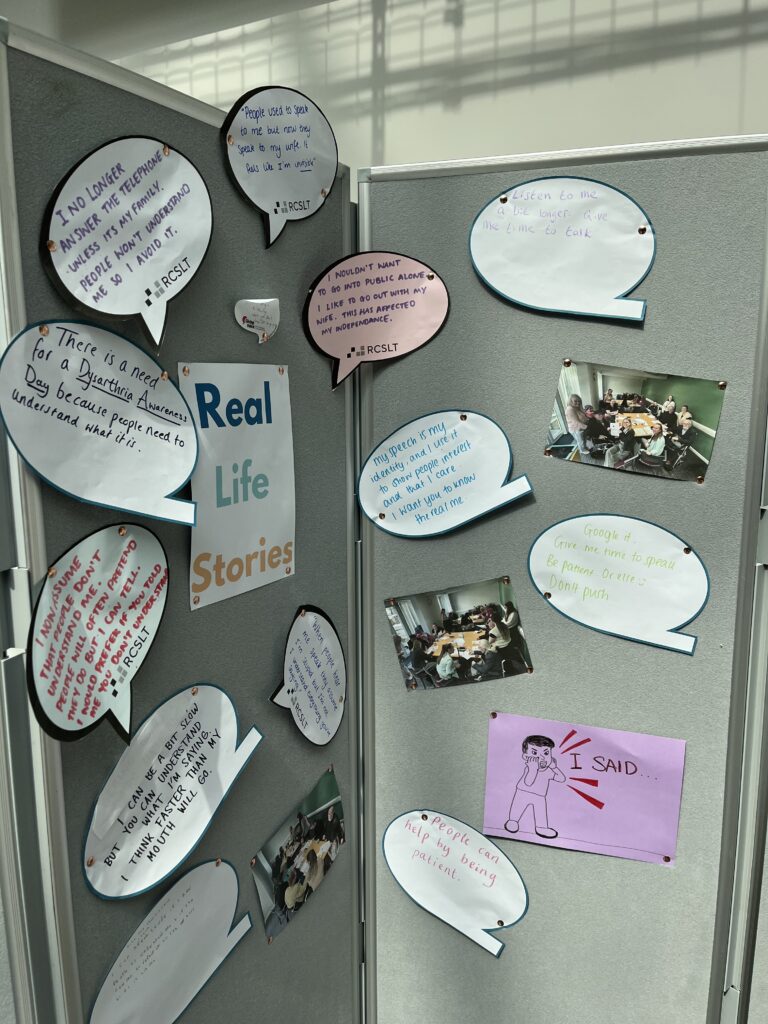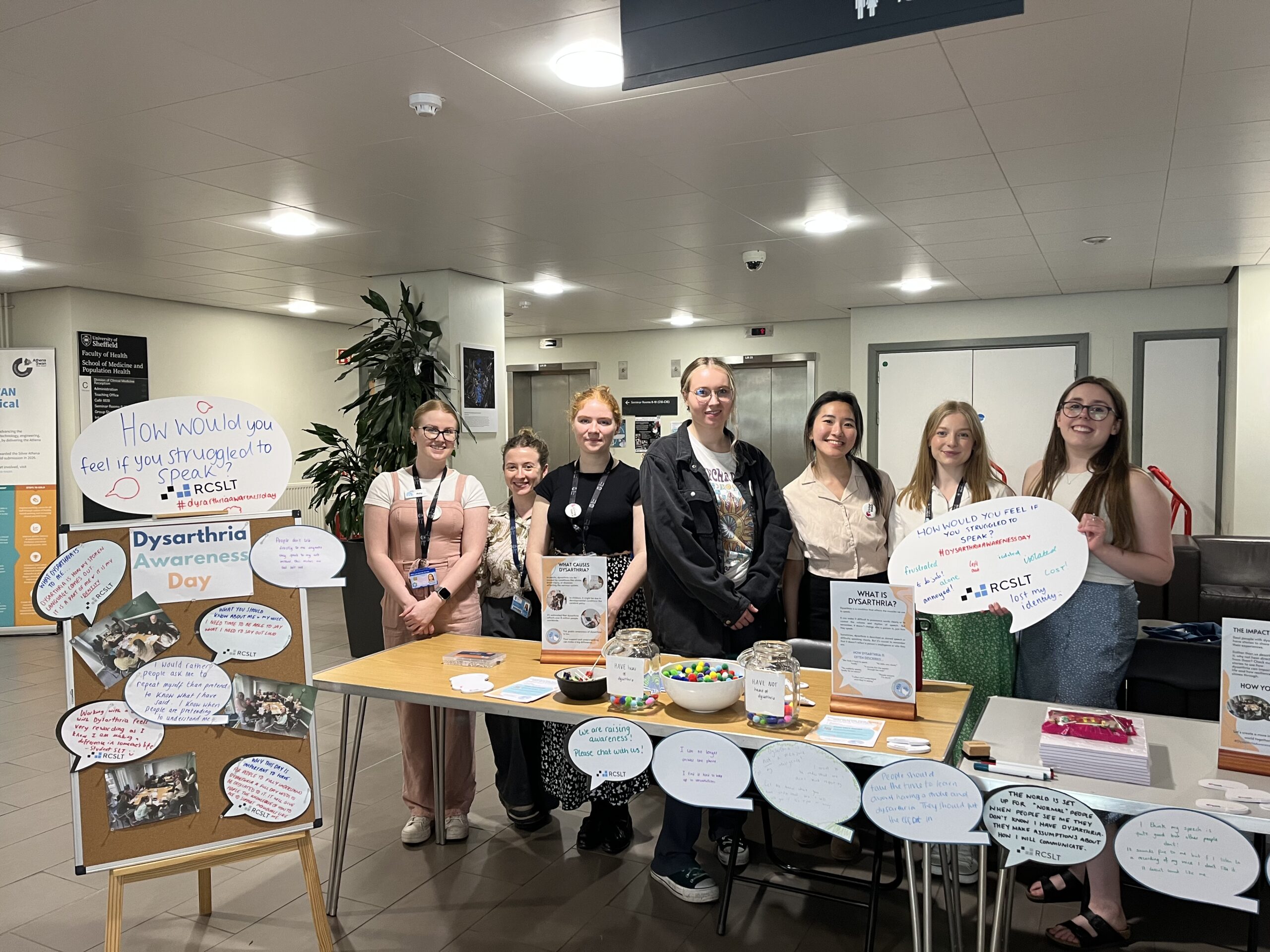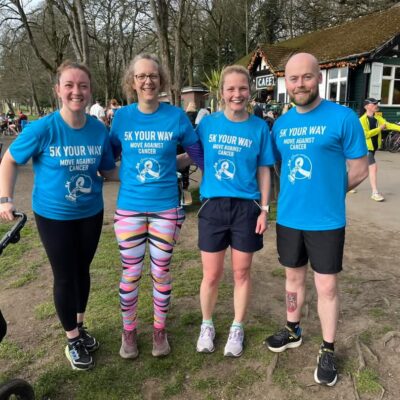A group of students and their course leaders organised stands at The University of Sheffield to commemorate Dysarthria Awareness Day in efforts to shed light on this condition and educate others.
The students and staff are promoting the Royal College of Speech and Language Therapists, RCSLT, Giving Voice campaign which aims to ‘give voice’ to people with communication needs.
Ellie Jenkins, a second year MA student, said: “There’s awareness month for strokes, there’s an awareness month for swallowing but we found out that there’s nothing specifically for dysarthria.
“We are starting this today but we are hoping it can spread and continue.”
Dysarthria is a motor speech disorder and some of the main symptoms are unclear speech, speaking in short bursts instead of full sentences and difficulty moving the mouth.
There were stands and boards set up with information explaining the condition and ways to help support patients such as listening actively, being patient and giving them time to speak.

John Quinn, a client with Dysarthria, said: “It’s a great idea, a lot of people don’t know about it.”
He added: “People definitely treat me differently.”
It’s important not to mistake dysarthria with other similar conditions which is what the students discovered some medical professionals do.
Some clients are then left not knowing that they have dysarthria which is why this awareness day is important.
Clients may be told they have a speech difficulty or another condition due to a lack of awareness.
The students set up two jars for people to fill with pompoms to indicate whether they have heard of or not heard of the condition.
They totaled that only 28 people had heard of it and 46 had not, some of which were dentists, medical students, dental students, support workers and community transport workers who actively interact with dysarthria patients everyday.
Catherine Tattersall, a University Teacher, said: “It’s one of the most widely experienced communication disorders.
“It affects such a wide range of people but nobody knows the word.”
Catherine Haw, another University teacher, wants people to ‘use the word’.
Many assumptions and judgements are made about patients with dysarthria that they aren’t intelligent or don’t understand things but this is not the case.
Lucy Anderson, a Master student, said: “Communication doesn’t equal intelligence. Your communication doesn’t define you as a person.”
The students and staff had a good turnout for their event and hope to continue this annually.




